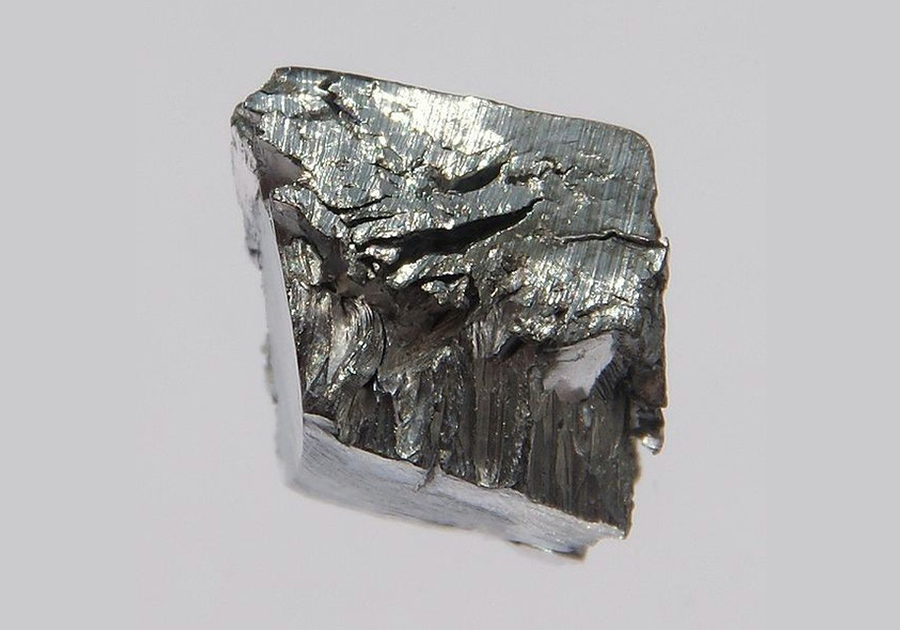ACCESS THE LATEST RESEARCH AND INSIGHTS

Canadian Assets Managers Facing Tough 2016
Canaccord Genuity has lowered its target multiples on Canadian asset managers, “to reflect market headwinds and lower sales transactions.”
Analyst Scott Chan said the sector’s stocks were down 17 per cent in 2015, compared to a drop of about 8 per cent for the S&P/TSX Composite Index.
So far in 2016, the asset managers he covers are down another 17 per cent on average “as market sentiment within the segment remains weak,” he said in a Jan. 20 note.
“We believe valuations are unlikely to re-rate medium term due to a number of headwinds: (1) market downturn; (2) lower mutual fund flows; (3) margin pressure (management fee declines, higher costs); (4) regulatory environment; and (5) downward revisions leading to below average 2016 EPS growth,” Mr. Chan said.
“As a result, we are lowering our target multiples across the board to reflect the current market environment. We believe the group should currently trade at a discount to its historical average due to the above mentioned headwinds. In certain cases, we were using premium target multiples.”
Mr. Chan’s changes were as follows:
AGF Management Ltd. (AGF.B-T, sell) to $4.25 from $4.50. Consensus: $5.50. Friday close: $4.14.
Aston Hill Financial Inc. (AHF-T, buy) to 60 cents from 75 cents. Consensus: 62 cents. Friday close: 19 cents.
CI Financial Corp. (CIX-T, buy) to $33.50 from $37. Consensus: $35.68. Friday close: $29.20
Fiera Capital Corp. (FSZ-T, buy) to $14 from $16.50. Consensus: $15.17. Friday close: $10.56.
Guardian Capital Group Ltd. (GCG.A-T, hold) to $18.50 from $19. Consensus: $19.75. Friday close: $16.96.
Gluskin Sheff + Associates Inc. (GS-T, buy) to $22.50 from $26. Consensus: $24.19. Friday close: $17
IGM Financial Inc. (IGM-T, buy) to $39 from $41. Consensus: $42.31. Friday close: $33.36
Sprott Inc. (SII-T, hold) to $2 from $2.20. Consensus: $2.46. Friday close: $1.90

Canadian Assets Managers Facing Tough 2016
Canaccord Genuity has lowered its target multiples on Canadian asset managers, “to reflect market headwinds and lower sales transactions.”
Analyst Scott Chan said the sector’s stocks were down 17 per cent in 2015, compared to a drop of about 8 per cent for the S&P/TSX Composite Index.
So far in 2016, the asset managers he covers are down another 17 per cent on average “as market sentiment within the segment remains weak,” he said in a Jan. 20 note.
“We believe valuations are unlikely to re-rate medium term due to a number of headwinds: (1) market downturn; (2) lower mutual fund flows; (3) margin pressure (management fee declines, higher costs); (4) regulatory environment; and (5) downward revisions leading to below average 2016 EPS growth,” Mr. Chan said.
“As a result, we are lowering our target multiples across the board to reflect the current market environment. We believe the group should currently trade at a discount to its historical average due to the above mentioned headwinds. In certain cases, we were using premium target multiples.”
Mr. Chan’s changes were as follows:
AGF Management Ltd. (AGF.B-T, sell) to $4.25 from $4.50. Consensus: $5.50. Friday close: $4.14.
Aston Hill Financial Inc. (AHF-T, buy) to 60 cents from 75 cents. Consensus: 62 cents. Friday close: 19 cents.
CI Financial Corp. (CIX-T, buy) to $33.50 from $37. Consensus: $35.68. Friday close: $29.20
Fiera Capital Corp. (FSZ-T, buy) to $14 from $16.50. Consensus: $15.17. Friday close: $10.56.
Guardian Capital Group Ltd. (GCG.A-T, hold) to $18.50 from $19. Consensus: $19.75. Friday close: $16.96.
Gluskin Sheff + Associates Inc. (GS-T, buy) to $22.50 from $26. Consensus: $24.19. Friday close: $17
IGM Financial Inc. (IGM-T, buy) to $39 from $41. Consensus: $42.31. Friday close: $33.36
Sprott Inc. (SII-T, hold) to $2 from $2.20. Consensus: $2.46. Friday close: $1.90

Canadian Stock On Sale – Time To Buy
2015 was “one of the most challenging years in the history of the Canadian equity marketplace,” according to analysts at Canaccord Genuity. The first week of 2016 hasn’t been any better.
That said, it could be a great buying opportunity for investors with “Canada on sale,” analysts at Canaccord say.
“Looking out to 2016, foreign investors (at least the contrarians) could be looking at Canada with a fresh perspective and conclude that most of the headwinds … are discounted in share prices,” the analysts said in a note on Jan. 6.
“Canada could also provide an excellent optionality to a successful soft landing in China, a rebound in oil prices, rising inflation expectations and a de-facto appreciation in the Canadian dollar.”
The analysts have laid out a number of their “best ‘value’ ideas” for 2016, including stocks across various industries that were down at least 20 per cent in 2015 that they believe will rebound in 2016. Below are some of their ideas:
Painted Pony Petroleum Ltd. (PPY-T)
Rating: Buy
Price Target: $15 (Consensus: $8.57, Current: $3.50)
Why buy: “We believe PPY is well positioned going into
2016 due to its compelling valuation, excellent growth profile, and its balance sheet.”
Alaris Royalty Corp. (AD-T)
Rating: Buy
Target: $34 (Consensus: $35, Current: $22.85)
Why buy: “Over the medium term, we favor Alaris for the following reasons; (1) diversified royalty revenue stream; (2) strong capital position to fund large pipeline; (3) attractive dividend yield of 6.9 per cent with potential for dividend growth; (4) operating leverage with relatively fixed cost base; and (5) strong management team with positive track record.”
Valeant Pharmaceuticals Intl (VRX-T, VRX-N)
Rating: Buy
Target: $170 (U.S.) (Consensus $157.57, Current: $98)
Why Buy: “With the establishment of a distribution
partnership with Walgreen’s, we believe that Valeant took its first steps to addressing both the drug pricing and specialty pharmacy issues. The discussion quickly shifted to organic growth at the company’s Investor day in mid-December, and Valeant managed to reset the bar with new financial guidance for 2016. However, a health scare for CEO Mike Pearson has threatened to derail the recovery and sent the stock down 10 per cent on the back of that news; we have no reason to believe that Mr. Pearson will not be back at the helm at some point (and, hopefully, soon).”
Magna International Inc. (MGA-N, MG-N)
Rating: Buy
Target: $66 (U.S.) (Consensus $$59.11, Current $35.70)
Why Buy: “We expect better share price from MGA in 2016 from; 1) sales growth, 2) margin expansion, 3) share buy backs, and 4) possible multiple expansion. We believe MGA should generate good sales growth in 2016 as the company announced that it expected $5 billion of sales growth from 2015-17 in its January 2015 guidance, with most of the growth expected to come in 2016 and 2017 (excluding recent acquisitions, divestitures and FX moves, but we think MGA should have significant sales growth including these factors),” the analysts said. “We also believe MGA could experience significant valuation multiple improvement as the current share price is well below our $71.00 DCF value. The catalyst to better valuation could be improved financial performance.”

Canadian Stock On Sale – Time To Buy
2015 was “one of the most challenging years in the history of the Canadian equity marketplace,” according to analysts at Canaccord Genuity. The first week of 2016 hasn’t been any better.
That said, it could be a great buying opportunity for investors with “Canada on sale,” analysts at Canaccord say.
“Looking out to 2016, foreign investors (at least the contrarians) could be looking at Canada with a fresh perspective and conclude that most of the headwinds … are discounted in share prices,” the analysts said in a note on Jan. 6.
“Canada could also provide an excellent optionality to a successful soft landing in China, a rebound in oil prices, rising inflation expectations and a de-facto appreciation in the Canadian dollar.”
The analysts have laid out a number of their “best ‘value’ ideas” for 2016, including stocks across various industries that were down at least 20 per cent in 2015 that they believe will rebound in 2016. Below are some of their ideas:
Painted Pony Petroleum Ltd. (PPY-T)
Rating: Buy
Price Target: $15 (Consensus: $8.57, Current: $3.50)
Why buy: “We believe PPY is well positioned going into
2016 due to its compelling valuation, excellent growth profile, and its balance sheet.”
Alaris Royalty Corp. (AD-T)
Rating: Buy
Target: $34 (Consensus: $35, Current: $22.85)
Why buy: “Over the medium term, we favor Alaris for the following reasons; (1) diversified royalty revenue stream; (2) strong capital position to fund large pipeline; (3) attractive dividend yield of 6.9 per cent with potential for dividend growth; (4) operating leverage with relatively fixed cost base; and (5) strong management team with positive track record.”
Valeant Pharmaceuticals Intl (VRX-T, VRX-N)
Rating: Buy
Target: $170 (U.S.) (Consensus $157.57, Current: $98)
Why Buy: “With the establishment of a distribution
partnership with Walgreen’s, we believe that Valeant took its first steps to addressing both the drug pricing and specialty pharmacy issues. The discussion quickly shifted to organic growth at the company’s Investor day in mid-December, and Valeant managed to reset the bar with new financial guidance for 2016. However, a health scare for CEO Mike Pearson has threatened to derail the recovery and sent the stock down 10 per cent on the back of that news; we have no reason to believe that Mr. Pearson will not be back at the helm at some point (and, hopefully, soon).”
Magna International Inc. (MGA-N, MG-N)
Rating: Buy
Target: $66 (U.S.) (Consensus $$59.11, Current $35.70)
Why Buy: “We expect better share price from MGA in 2016 from; 1) sales growth, 2) margin expansion, 3) share buy backs, and 4) possible multiple expansion. We believe MGA should generate good sales growth in 2016 as the company announced that it expected $5 billion of sales growth from 2015-17 in its January 2015 guidance, with most of the growth expected to come in 2016 and 2017 (excluding recent acquisitions, divestitures and FX moves, but we think MGA should have significant sales growth including these factors),” the analysts said. “We also believe MGA could experience significant valuation multiple improvement as the current share price is well below our $71.00 DCF value. The catalyst to better valuation could be improved financial performance.”

Canaccord’s Consumer Stock Picks for 2016
Canada’s economy is weak and consumer confidence is lagging, but people still need to eat, drink and buy gas to get to around. Thanks to lower oil prices, consumers have a little bit of extra spending money, but may feel less inclined to buy big-ticket items at a time when the country’s household-debt-to-income is at a record high. That’s why Canaccord Genuity is favouring consumer staple stocks over consumer discretionary in 2016.
Analyst Derek Dley has released his “Best Ideas for 2016” list, which includes his favourite picks in the consumer staples sector: Convenience store operator Alimentation Couche Tard (ADT.B-T), beverage company Cott Corp. (BCB-T, COT-N) and meat producer Maple Leaf Foods (MFI-T). He has a buy on all three stocks. Here’s why:
Alimentation Couche Tard: Mr. Dley has a $71 target price. (Consensus is $74.42. The stock is currently trading around $62). His reasons to own include: strong momentum in quarterly results, especially in the U.S.; a healthy balance sheet; and the fact that it trades at a discount to its peers. The shares are up 30 per cent over the past year.
Cott Corp: Mr. Dley has a $15 (U.S.) target price. (Consensus is $13.59. The stock is currently trading around $10.90 on the NYSE). His reasons to own include benefits from its acquisition of DS Services, which have shifted Cott’s product mix to “much higher-growth categories of the beverage industry.” The acquisition has also improved Cott’s margin profile and includes a number of cross selling and acquisition opportunities,” Mr. Dley said. He also believes Cott’s contract manufacturing will help to offset any further declines in its legacy Cott’s legacy carbonated beverage business. Cost is also trading at a “steep discount” to its peer, the analyst notes. Cost shares are up more than 55 per cent over the past year. (See chart below)
Maple Leaf Foods: He has a $25 target price, a slight premium to its current price around $23.45. (Consensus is $24.67). Mr. Dley’s reasons to own include an anticipated re-rating of its valuation once the company achieves 10 per cent earning before interest, taxes, depreciation and amortization (EBITDA) margins, “implying 25 per cent upside to the current share price.” He said management, longer term, believes 10 per cent EBITDA margins “represent a floor, not a ceiling,” Mr. Dley said. “Growth opportunities and capital return mechanisms represent
the next leg of growth.” Maple Leaf shares have risen about 20 per cent in the past year.

Canaccord’s Consumer Stock Picks for 2016
Canada’s economy is weak and consumer confidence is lagging, but people still need to eat, drink and buy gas to get to around. Thanks to lower oil prices, consumers have a little bit of extra spending money, but may feel less inclined to buy big-ticket items at a time when the country’s household-debt-to-income is at a record high. That’s why Canaccord Genuity is favouring consumer staple stocks over consumer discretionary in 2016.
Analyst Derek Dley has released his “Best Ideas for 2016” list, which includes his favourite picks in the consumer staples sector: Convenience store operator Alimentation Couche Tard (ADT.B-T), beverage company Cott Corp. (BCB-T, COT-N) and meat producer Maple Leaf Foods (MFI-T). He has a buy on all three stocks. Here’s why:
Alimentation Couche Tard: Mr. Dley has a $71 target price. (Consensus is $74.42. The stock is currently trading around $62). His reasons to own include: strong momentum in quarterly results, especially in the U.S.; a healthy balance sheet; and the fact that it trades at a discount to its peers. The shares are up 30 per cent over the past year.
Cott Corp: Mr. Dley has a $15 (U.S.) target price. (Consensus is $13.59. The stock is currently trading around $10.90 on the NYSE). His reasons to own include benefits from its acquisition of DS Services, which have shifted Cott’s product mix to “much higher-growth categories of the beverage industry.” The acquisition has also improved Cott’s margin profile and includes a number of cross selling and acquisition opportunities,” Mr. Dley said. He also believes Cott’s contract manufacturing will help to offset any further declines in its legacy Cott’s legacy carbonated beverage business. Cost is also trading at a “steep discount” to its peer, the analyst notes. Cost shares are up more than 55 per cent over the past year. (See chart below)
Maple Leaf Foods: He has a $25 target price, a slight premium to its current price around $23.45. (Consensus is $24.67). Mr. Dley’s reasons to own include an anticipated re-rating of its valuation once the company achieves 10 per cent earning before interest, taxes, depreciation and amortization (EBITDA) margins, “implying 25 per cent upside to the current share price.” He said management, longer term, believes 10 per cent EBITDA margins “represent a floor, not a ceiling,” Mr. Dley said. “Growth opportunities and capital return mechanisms represent
the next leg of growth.” Maple Leaf shares have risen about 20 per cent in the past year.

Altus Group the ‘Bloomberg’ of Real Estate: RBC
RBC Dominion Securities has initiated coverage of real estate services company Altus Group Ltd. (AIF-T) with a “sector perform” and $21 price target, about 11 per cent above its current value around $18.90. The analyst consensus price target for Altus Group over the next year is higher at $22.83.
Toronto-based Altus Group is undergoing a transition from a real estate services provider to an information and software company for the industry, which RBC analyst Paul Treiber says is already reflected in the stock price.
“Altus’ shares offer lower capital appreciation and organic growth potential compared to pure-play stocks. Moreover, headwinds to Canadian services businesses may be sustained,” Mr. Treiber said in a Dec. 15 note.
“With 58 per cent of Altus’ total revenue tied to the Canadian real estate services market, RBC’s outlook for a 6 per cent year-over-year contraction in real estate transactions in Canada is a headwind to Altus’ core real estate services.”
Still, he expects software and data revenues to grow, which should help improve fundamentals.
“Altus is developing a portfolio of software and data solutions, which we see as comparable to Bloomberg applied to real estate. Vertical market software is structurally attractive and the opportunity for software in real estate appears large,” the analyst said.
His outlook is for the company’s software and data revenue to grow at a compound annual growth rate of 17.6 per cent between 2015 and 2017, to 37 per cent of total revenue.
“A higher mix of software would be accretive to margins, cashflow, and ROIC [return on invested capital] in our view,” Mr. Treiber says.
Altus shares are down 7 per cent over the past year (see chart below). Among six analysts that cover the stock, five have a “buy” rating, according to Thomson Reuters. Mr. Treiber at RBC has the only “hold.”
“Altus’ potential capital appreciation through acquisitions will be at a slower pace than pure-play consolidators in our universe,” Mr. Treiber said.
“Altus’ real estate services businesses dilute the organic growth from software; as a result, we expect Altus’ organic revenue growth at 4.6 per cent per annum between 2015 and 2017, which is below Canadian secular-growth stocks (median 21 per cent).”

Altus Group the ‘Bloomberg’ of Real Estate: RBC
RBC Dominion Securities has initiated coverage of real estate services company Altus Group Ltd. (AIF-T) with a “sector perform” and $21 price target, about 11 per cent above its current value around $18.90. The analyst consensus price target for Altus Group over the next year is higher at $22.83.
Toronto-based Altus Group is undergoing a transition from a real estate services provider to an information and software company for the industry, which RBC analyst Paul Treiber says is already reflected in the stock price.
“Altus’ shares offer lower capital appreciation and organic growth potential compared to pure-play stocks. Moreover, headwinds to Canadian services businesses may be sustained,” Mr. Treiber said in a Dec. 15 note.
“With 58 per cent of Altus’ total revenue tied to the Canadian real estate services market, RBC’s outlook for a 6 per cent year-over-year contraction in real estate transactions in Canada is a headwind to Altus’ core real estate services.”
Still, he expects software and data revenues to grow, which should help improve fundamentals.
“Altus is developing a portfolio of software and data solutions, which we see as comparable to Bloomberg applied to real estate. Vertical market software is structurally attractive and the opportunity for software in real estate appears large,” the analyst said.
His outlook is for the company’s software and data revenue to grow at a compound annual growth rate of 17.6 per cent between 2015 and 2017, to 37 per cent of total revenue.
“A higher mix of software would be accretive to margins, cashflow, and ROIC [return on invested capital] in our view,” Mr. Treiber says.
Altus shares are down 7 per cent over the past year (see chart below). Among six analysts that cover the stock, five have a “buy” rating, according to Thomson Reuters. Mr. Treiber at RBC has the only “hold.”
“Altus’ potential capital appreciation through acquisitions will be at a slower pace than pure-play consolidators in our universe,” Mr. Treiber said.
“Altus’ real estate services businesses dilute the organic growth from software; as a result, we expect Altus’ organic revenue growth at 4.6 per cent per annum between 2015 and 2017, which is below Canadian secular-growth stocks (median 21 per cent).”

Aequus Pharmaceuticals Set to Soar in 2016
Noble Life Science Partners is initiating coverage of specialty pharma company Aequus Pharmaceuticals Inc. (AQS-V) with a “buy” and a 12-to-18 month target price target of $1.90, which is a tripling of its current price just under 60 cents.
Aequus is a Vancouver-based specialty pharmaceutical company that develops and commercializes drugs in Canada, with a focus on therapeutic areas such as neurology, ophthalmology, and transplantation.
Noble analyst Nathan Cali said the company’s focus is development and commercialization of long-acting alternatives to currently approved drugs “that are limited by noncompliance, high-frequency dosing, first-pass metabolism, side effects or painful injections.”
He said the company is building its commercial and development pipeline through acquisitions and the development of an internal pipeline.
“Aequus has signed several value driving agreements in 2015 that may offer investors significant future value in addition to the company’s neurology based transdermal development pipeline,” he said in a note on Dec. 9.
“We expect value to be driven through the advancement of the two transdermal programs with the use of already approved active agents in the U.S.”
One is a transdermal application of Abilify (aripiprazole) intended to treat Bipolar I disorder, “with the potential for additional product line extensions into autistic disorder, schizophrenia and major depressive disorder (MDD),” he noted.
In July 2015, Aequus bought TeOra Health, a Canadian based specialty pharmaceutical company focused in oncology, ophthalmology and transplant medications.
In October, Aequus signed a binding term sheet to exclusively promote and be a marketing partner for Tacrolimus immediate release (IR), a calcineurin inhibitor, immunosuppressant prophylaxis of organ transplant rejection (kidney, liver, and heart). Tacrolimus is currently owned by Sandoz and the prophylactic transplant market in Canada is estimated at $300 million, Mr. Cali noted.
He said the company could announce additional product line extension through Sandoz. On Dec. 2, Aequus announced the promotional launch of Tacrolimus, which Mr. Cali says is the first product that is expected to generate revenue for the company.

Aequus Pharmaceuticals Set to Soar in 2016
Noble Life Science Partners is initiating coverage of specialty pharma company Aequus Pharmaceuticals Inc. (AQS-V) with a “buy” and a 12-to-18 month target price target of $1.90, which is a tripling of its current price just under 60 cents.
Aequus is a Vancouver-based specialty pharmaceutical company that develops and commercializes drugs in Canada, with a focus on therapeutic areas such as neurology, ophthalmology, and transplantation.
Noble analyst Nathan Cali said the company’s focus is development and commercialization of long-acting alternatives to currently approved drugs “that are limited by noncompliance, high-frequency dosing, first-pass metabolism, side effects or painful injections.”
He said the company is building its commercial and development pipeline through acquisitions and the development of an internal pipeline.
“Aequus has signed several value driving agreements in 2015 that may offer investors significant future value in addition to the company’s neurology based transdermal development pipeline,” he said in a note on Dec. 9.
“We expect value to be driven through the advancement of the two transdermal programs with the use of already approved active agents in the U.S.”
One is a transdermal application of Abilify (aripiprazole) intended to treat Bipolar I disorder, “with the potential for additional product line extensions into autistic disorder, schizophrenia and major depressive disorder (MDD),” he noted.
In July 2015, Aequus bought TeOra Health, a Canadian based specialty pharmaceutical company focused in oncology, ophthalmology and transplant medications.
In October, Aequus signed a binding term sheet to exclusively promote and be a marketing partner for Tacrolimus immediate release (IR), a calcineurin inhibitor, immunosuppressant prophylaxis of organ transplant rejection (kidney, liver, and heart). Tacrolimus is currently owned by Sandoz and the prophylactic transplant market in Canada is estimated at $300 million, Mr. Cali noted.
He said the company could announce additional product line extension through Sandoz. On Dec. 2, Aequus announced the promotional launch of Tacrolimus, which Mr. Cali says is the first product that is expected to generate revenue for the company.

Lithium Set for Liftoff, Say Citi Analysts
Citigroup Global Capital Markets is underscoring the critical role it sees lithium playing in the future economy, in everything from energy storage in the automotive sector to consumer electronics and electricity distribution.
As world leaders gather in Paris to talk about tackling the impacts of climate change, Citi analysts are eyeing the benefits for investors interested in the lithium market.
Lithium-based batteries provide higher voltage, higher power density, lower discharge rates with no memory affect versus the competing alternatives, Citi says. “This makes it the go-to technology for energy storage,” the analysts wrote in a note on Oct. 16.
“We see positive demand from electric vehicles further tightening the lithium market already buoyant from consumer goods and industrial applications.”
It forecasts lithium carbonate prices to rise to about $7,000 (U.S.) per tonne by mid-2017, “before a wave of projects enter (and reenter) the market dampening prices.” Still, the analysts expect prices to be maintained about $6,000 per tonne for the rest of the decade.
“The mass adoption of pure electric vehicles such as the Tesla Model S or the Nissan Leaf would be a boom to the lithium market,” Citi says. It forecasts electric vehicle production of 1.04 million in 2020 (up from 0.15 million in 2015). That could raise annual consumption to a rate equivalent to a 56 per cent CAGR [compound annual growth rate] between 2014 and 2020.
“There are significant government incentives in place across the globe to encourage this adoption trend,” Citi notes.
It also says Lithium-ion batteries remain the dominant technology for consumer electronic applications, driven by the increased power intensity of mobile handsets as the developing world transitions to smart phones.
It also has a key role in electricity distribution: “Grid scale battery storage is at a very early stage, but lithium based batteries have the capability to increase energy reliability in undeveloped grids, balance short term grid fluctuations, reduce grid congestion and load shift power requirements from peak periods. We see the consumption of lithium in this segment as relatively modest, but it does have upside potentially.”
The analyst notes that lithium production is dominated by four producers who control about 90 per cent of the market: Tianqi Lithium, Albermarle, SQM and FMC with Orocobre set to join the group in 2016.

Lithium Set for Liftoff, Say Citi Analysts
Citigroup Global Capital Markets is underscoring the critical role it sees lithium playing in the future economy, in everything from energy storage in the automotive sector to consumer electronics and electricity distribution.
As world leaders gather in Paris to talk about tackling the impacts of climate change, Citi analysts are eyeing the benefits for investors interested in the lithium market.
Lithium-based batteries provide higher voltage, higher power density, lower discharge rates with no memory affect versus the competing alternatives, Citi says. “This makes it the go-to technology for energy storage,” the analysts wrote in a note on Oct. 16.
“We see positive demand from electric vehicles further tightening the lithium market already buoyant from consumer goods and industrial applications.”
It forecasts lithium carbonate prices to rise to about $7,000 (U.S.) per tonne by mid-2017, “before a wave of projects enter (and reenter) the market dampening prices.” Still, the analysts expect prices to be maintained about $6,000 per tonne for the rest of the decade.
“The mass adoption of pure electric vehicles such as the Tesla Model S or the Nissan Leaf would be a boom to the lithium market,” Citi says. It forecasts electric vehicle production of 1.04 million in 2020 (up from 0.15 million in 2015). That could raise annual consumption to a rate equivalent to a 56 per cent CAGR [compound annual growth rate] between 2014 and 2020.
“There are significant government incentives in place across the globe to encourage this adoption trend,” Citi notes.
It also says Lithium-ion batteries remain the dominant technology for consumer electronic applications, driven by the increased power intensity of mobile handsets as the developing world transitions to smart phones.
It also has a key role in electricity distribution: “Grid scale battery storage is at a very early stage, but lithium based batteries have the capability to increase energy reliability in undeveloped grids, balance short term grid fluctuations, reduce grid congestion and load shift power requirements from peak periods. We see the consumption of lithium in this segment as relatively modest, but it does have upside potentially.”
The analyst notes that lithium production is dominated by four producers who control about 90 per cent of the market: Tianqi Lithium, Albermarle, SQM and FMC with Orocobre set to join the group in 2016.

Valeant: The Next Enron?
RBC Capital Markets is becoming slightly more bullish on power generator company TransAlta Corp. (TA-T, TAC-N), saying the benefits of Alberta’s new climate change policy will outweigh the risks.
Analyst Robert Kwan upgraded the stock to “sector perform” from “underperform” last week and increased his target to $7 from $6. The stock closed Friday at $5.56 on the Toronto Stock Exchange.
“Due to a combination of the release of the Alberta climate change framework and the stock’s being within striking distance of a 52-week (and all-time) low, we see enough symmetry in the upside potential and downside risk to upgrade the shares,” Mr. Kwan said in a note on Nov. 23.
The Alberta government announced a new climate agenda on Nov. 22 that includes an economy-wide carbon tax starting in 2017 and a phaseout of coal-fired power in the next 15 years.
TransAlta said the news brings certainty to the company and its shareholders.
“In the past six months we’ve seen a significant devaluation of our stock price due to the uncertainty of the future value of our coal assets in Alberta,” TransAlta chief financial officer Donald Tremblay said in a statement. The stock has dropped about 50 per cent in the past six months.
TransAlta, a major generator of coal-fired power, also said it’s analyzing various growth opportunities in renewables, including hydro, solar, wind and gas as part of a clean power strategy.
“The new Alberta climate change framework likely eliminates the worst- case scenario,” RBC’s Mr. Kwan said. Still, he recommends that investors with a low-risk tolerance and/or seeking a high yield “should look elsewhere” than TransAlta.
He believes TransAlta stock will have “above-average volatility” in the near term and expects the company to cut dividends. TransAlta currently pays a quarterly dividend of 18 cents per share, which currently yields about 12.4 per cent,
“We do not view the stock as appropriate for investors with a low-risk tolerance or those expecting the company to sustain the dividend,” Mr. Kwan said.
Among 11 analysts that cover the stock, seven have a “hold” and three a “buy,” with one “sell,” according to Thomson Reuters. The analyst consensus price target over the next year is $8.50.

Valeant: The Next Enron?
RBC Capital Markets is becoming slightly more bullish on power generator company TransAlta Corp. (TA-T, TAC-N), saying the benefits of Alberta’s new climate change policy will outweigh the risks.
Analyst Robert Kwan upgraded the stock to “sector perform” from “underperform” last week and increased his target to $7 from $6. The stock closed Friday at $5.56 on the Toronto Stock Exchange.
“Due to a combination of the release of the Alberta climate change framework and the stock’s being within striking distance of a 52-week (and all-time) low, we see enough symmetry in the upside potential and downside risk to upgrade the shares,” Mr. Kwan said in a note on Nov. 23.
The Alberta government announced a new climate agenda on Nov. 22 that includes an economy-wide carbon tax starting in 2017 and a phaseout of coal-fired power in the next 15 years.
TransAlta said the news brings certainty to the company and its shareholders.
“In the past six months we’ve seen a significant devaluation of our stock price due to the uncertainty of the future value of our coal assets in Alberta,” TransAlta chief financial officer Donald Tremblay said in a statement. The stock has dropped about 50 per cent in the past six months.
TransAlta, a major generator of coal-fired power, also said it’s analyzing various growth opportunities in renewables, including hydro, solar, wind and gas as part of a clean power strategy.
“The new Alberta climate change framework likely eliminates the worst- case scenario,” RBC’s Mr. Kwan said. Still, he recommends that investors with a low-risk tolerance and/or seeking a high yield “should look elsewhere” than TransAlta.
He believes TransAlta stock will have “above-average volatility” in the near term and expects the company to cut dividends. TransAlta currently pays a quarterly dividend of 18 cents per share, which currently yields about 12.4 per cent,
“We do not view the stock as appropriate for investors with a low-risk tolerance or those expecting the company to sustain the dividend,” Mr. Kwan said.
Among 11 analysts that cover the stock, seven have a “hold” and three a “buy,” with one “sell,” according to Thomson Reuters. The analyst consensus price target over the next year is $8.50.

Newly Public Hydro One ‘Wired for Stability’
RBC Capital Markets initiated coverage of Hydro One Ltd. (H-T) with an “outperform,” saying the newly public company is “an attractive addition to our positive view on the regulated utilities sub-sector. “
Analyst Robert Kwan has a $25 target, which is more than 10 per cent above its current price around $22.50.
Mr. Kwan expects the stock to provide investors with an “attractive” 4-per-cent yield and anticipates dividend growth in the 4-to-4.5 per cent compound annual growth rate through 2019, “tracking rate base growth with good potential for upside if Hydro One is able to achieve growth via operational efficiencies.”
Toronto-based Hydro One started trading on the TSX on Nov. 5, at an initial public offering price of $20.50 per common share, raising $1.66 billion for the province of Ontario. The offering, one of the largest in Canada, was made through a syndicate of underwriters led by RBC and Scotiabank.
Hydro One is Ontario’s largest electrical transmission and distribution utility with approximately $23 billion in assets and 2014 revenues of more than $6 billion.
RBC’s $25 share price target is based on 20 times forward earnings per share estimates for 2017 and similar to what it uses for Fortis. Mr. Kwan views Fortis as the most comparable stock to Hydro One given that both companies derive their earnings from regulated businesses.
“While Hydro One’s base growth is slightly lower than what we expect from Fortis, we believe that the stock will trade in line with Fortis’s shares given Hydro One’s upside optionality from transmission and cost efficiencies along with what we see as underlying demand for the stock post the IPO,” he said in a note on Nov. 16
The analyst consensus price target for Hydro One over the next year is $23.10. CIBC World Markets has a “sector perform” on Hydro One and a $22 target price, while National Bank has an “outperform” and $26 target.
BMO Capital Markets has a $23.50 target and “market perform” rating. In a note titled “Wired for Stability,” analyst Ben Pham said Hydro One has a total return potential below BMO’s coverage group average.
However, the analyst said he sees “attractive long-term upside as dividends rise over time, creating a positive bias for long-term investors seeking an attractive growing yield amid a sub-2-per-cent bond yield environment.”
Hydro One reported an 11-per-cent rise in third-quarter profit on Nov. 13, driven by increased demand due to warmer-than-usual weather.
The company, 85 percent owned by the Ontario government, said revenue rose 5.7 per cent to $1.65 billion in the quarter ended Sept. 30. It said average annual 60-minute peak demand rose 5 per cent to 22.32 gigawatts during the period.

Newly Public Hydro One ‘Wired for Stability’
RBC Capital Markets initiated coverage of Hydro One Ltd. (H-T) with an “outperform,” saying the newly public company is “an attractive addition to our positive view on the regulated utilities sub-sector. “
Analyst Robert Kwan has a $25 target, which is more than 10 per cent above its current price around $22.50.
Mr. Kwan expects the stock to provide investors with an “attractive” 4-per-cent yield and anticipates dividend growth in the 4-to-4.5 per cent compound annual growth rate through 2019, “tracking rate base growth with good potential for upside if Hydro One is able to achieve growth via operational efficiencies.”
Toronto-based Hydro One started trading on the TSX on Nov. 5, at an initial public offering price of $20.50 per common share, raising $1.66 billion for the province of Ontario. The offering, one of the largest in Canada, was made through a syndicate of underwriters led by RBC and Scotiabank.
Hydro One is Ontario’s largest electrical transmission and distribution utility with approximately $23 billion in assets and 2014 revenues of more than $6 billion.
RBC’s $25 share price target is based on 20 times forward earnings per share estimates for 2017 and similar to what it uses for Fortis. Mr. Kwan views Fortis as the most comparable stock to Hydro One given that both companies derive their earnings from regulated businesses.
“While Hydro One’s base growth is slightly lower than what we expect from Fortis, we believe that the stock will trade in line with Fortis’s shares given Hydro One’s upside optionality from transmission and cost efficiencies along with what we see as underlying demand for the stock post the IPO,” he said in a note on Nov. 16
The analyst consensus price target for Hydro One over the next year is $23.10. CIBC World Markets has a “sector perform” on Hydro One and a $22 target price, while National Bank has an “outperform” and $26 target.
BMO Capital Markets has a $23.50 target and “market perform” rating. In a note titled “Wired for Stability,” analyst Ben Pham said Hydro One has a total return potential below BMO’s coverage group average.
However, the analyst said he sees “attractive long-term upside as dividends rise over time, creating a positive bias for long-term investors seeking an attractive growing yield amid a sub-2-per-cent bond yield environment.”
Hydro One reported an 11-per-cent rise in third-quarter profit on Nov. 13, driven by increased demand due to warmer-than-usual weather.
The company, 85 percent owned by the Ontario government, said revenue rose 5.7 per cent to $1.65 billion in the quarter ended Sept. 30. It said average annual 60-minute peak demand rose 5 per cent to 22.32 gigawatts during the period.
